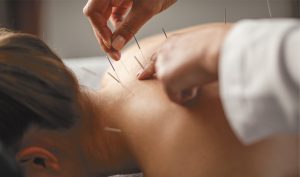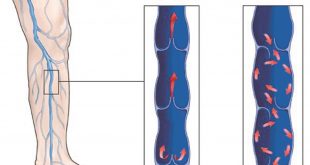By Dr. Mary Lambert, AP, DOM
 The first time I experienced acupuncture and Traditional Chinese Medicine (TCM) was in the early 2000s after a car accident.
The first time I experienced acupuncture and Traditional Chinese Medicine (TCM) was in the early 2000s after a car accident.
I knew nothing about it, but I knew that conventional therapies were not helping to resolve the pain from my injuries. So off I went to the acupuncture clinic, where the Acupuncture Physician utilized all of the branches of TCM: Acupuncture, Chinese Herbal Medicine, and Tui Na, also known as Chinese medical massage. Not only did I experience relief from pain, but the doctor also helped to treat my PTSD from the car accident. My eyes were opened to the possibilities!
Fast forward to now, I’m now a practicing board certified Acupuncture Physician. With the study and credentialing requirements being as arduous as it is for Western medicine providers, there are so few acupuncturists that make it through the entire process. Studying TCM means thousands of hours studying anatomy and physiology, both in Eastern and Western medicine, studying the Chinese language, medical massage, evaluation and differential diagnostics. We learned how to interpret imaging, and to read lab work, we studied Eastern herbal medicine with all of its internal and external applications and we studied western pharmacology. With all of that under our belts, Acupuncturists are recognized as primary care providers in the state of Florida.
In this article, I would like to share with you some of the origins and history of Acupuncture, what to expect during a treatment, what we can treat and ways that we’ve modernized this ancient healing art.
Acupuncture originated in China over 2,500 years ago with some archaeological findings dating back 5,000 years! Traditional Chinese Medicine is rooted in the concepts of Qi, Yin and Yang. Qi flows through pathways called meridians in the body that follow the neurological and vascular systems in the body. Similar to a highway connecting major cities, when a motor vehicle accident blocks the road, nothing gets through, and pain and suffering result. Clearing the traffic jam takes time and coordinated effort to restore the traffic flow. Similarly, when an obstruction blocks the meridians, pain and illness can occur. We use specific places on the meridians, called acupoints, to clear that traffic jam and restore the free flow in the meridians.
Modern scientific research shows that acupuncture works by stimulating the nervous system, increasing blood flow, reducing inflammation and releasing endorphins, the body’s natural painkillers. Functional MRI studies have shown that acupuncture can activate brain regions involved in pain processing and stress regulation, offering an explanation for its effectiveness in managing various conditions.
What can acupuncture treat? The short answer is everything! TCM is a fully developed health care system that has survived several millennia, and can treat every aspect of the mind and body.
Pain Relief: Acupuncture is recognized for its ability to relieve chronic pain, including back pain, neck pain, osteoarthritis, and headaches. Many studies have shown that acupuncture can be more effective than conventional pain treatments.
Stress Reduction: By promoting relaxation and reducing stress, acupuncture can alleviate symptoms of anxiety and depression. The treatment’s calming effects can improve sleep quality and enhance mental well-being.
Improved Digestion: Acupuncture supports digestive health by regulating the digestive system and reducing symptoms such as irritable bowel syndrome (IBS) and acid reflux.
Enhanced Immune Function: Regular acupuncture treatments can support the immune system, helping the body fight off infections and illnesses more effectively.
Women’s Health: Acupuncture can address a range of women’s health issues, including menstrual irregularities, menopause symptoms, and infertility. It can also be beneficial during pregnancy for managing morning sickness and promoting a smoother labor process.
If you’re considering acupuncture, it’s helpful to know what to expect during a session.
1. Initial Consultation: Your acupuncturist will take a detailed health history and ask about your symptoms, lifestyle, and any specific health concerns. This helps them create a personalized treatment plan.
2. Needle Insertion: The acupuncturist will hair-thin sterile needles into specific acupoints on your body. You might feel a slight pinch or tingling sensation, but the process is generally painless.
3. Relaxation: Once the needles are in place, you’ll typically rest for around 30 minutes. Many people find this time deeply relaxing and may even fall asleep.
4. Needle Removal: The acupuncturist will remove the needles. There are usually no significant side effects, but you should have an amazing night’s sleep.
To ensure a safe and effective acupuncture experience, it’s crucial to find a qualified practitioner. Look for a licensed acupuncturist who has completed an accredited training program and is board certified by the National Certification Commission for Acupuncture and Oriental Medicine (NCCAOM) in the United States.
Acupuncture offers a holistic approach to health and wellness, addressing both physical and emotional aspects of well-being. As more people seek natural alternatives to conventional treatments, acupuncture continues to gain recognition for its ability to promote balance, relieve pain, and enhance overall quality of life. By raising awareness about this ancient practice, we can help more individuals discover the benefits of acupuncture and incorporate it into their health and wellness routines.
If you are ready to discover the benefits that acupuncture can offer, call Dr. Mary at Lambert Wellness to book your free consultation. 239-776-4055. Whether you’re dealing with chronic pain, stress, or other health issues, acupuncture can provide the relief and healing you need.
Experience natural healing and wellness
Transform your body, mind, and spirit with our holistic approach. Call 239-776-4055 today or visit us online at www.LambertWellnessCenter.com!
 Southwest Florida's Health and Wellness Magazine Health and Wellness Articles
Southwest Florida's Health and Wellness Magazine Health and Wellness Articles

